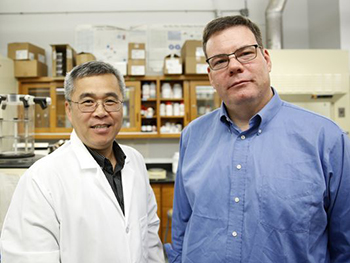When it comes to incidents of stroke and the impact it can have on lives, the numbers are sobering.
Someone has a stroke every 40 seconds. Every four minutes, someone dies of stroke, reports the Centers for Disease Control and Prevention.

(Photo courtesy: Hali Tauxe/Democrat)
The overwhelming majority of all strokes, or about 87 percent, CDC records show, are ischemic strokes, which occur when blood flow to the brain is blocked.
What’s critical to any chance of survival of a stroke, referred to as an attack of the brain, is getting treatment as soon as possible.
And, while the best-known immediate treatment is through drugs that can help dissolve a blood clot, or emergency surgery in dire circumstances, two researchers at Florida State University are busily moving forward in trying to identify an extension of that treatment through the use of cells.
Samuel Grant, associate professor of chemical and biomedical engineering, is director of the MRI user program at the MagLab on campus; Teng Ma is a professor and chair of the Department of Chemical and Biomedical Engineering.
The two have at their disposal the powerful MRI machine located at the College of Medicine, as well as instruments at the Mag Lab to help further their studies.
